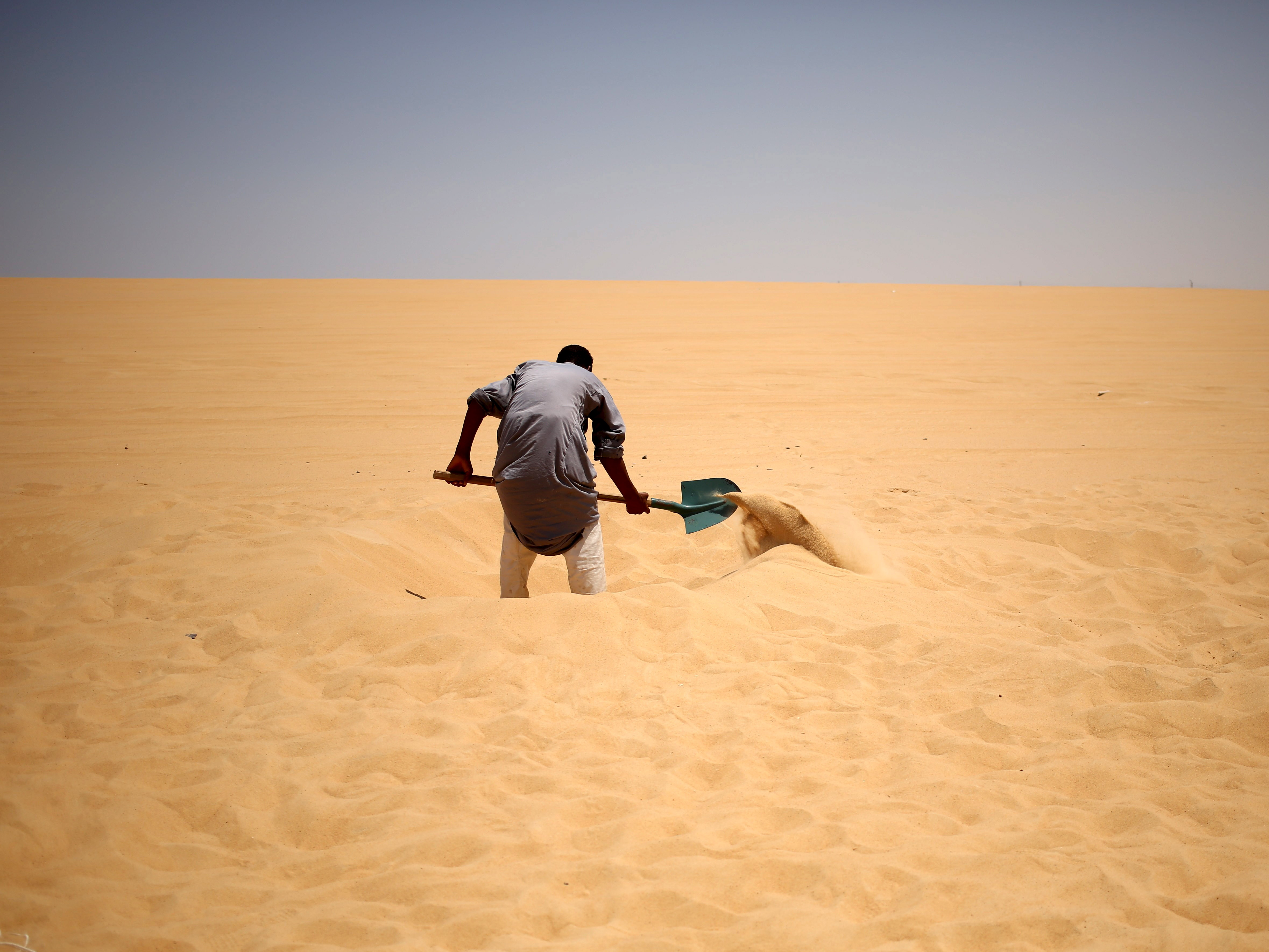Egypt’s central bank floated the pound on Thursday in an attempt to stabilize its economy, which has been hampered by a shortage of dollars.
The currency was initially devalued by 32.3% to about 13 pounds per dollar, down from the previous peg of 8.8 per dollar, which had been in place since March. It has since tumbled further, and is now down by about 50%.
At the same time, the central bank also hiked rates by 300 basis points in an attempt to curtail the inflation that’s likely to follow the weaker exchange rate.
The devaluation of the pound was one of the key demands by the International Monetary Fund in order for Egypt to receive a loan of $12 billion over three years. The IMF has yet to officially ratify the loan, but it is seen as crucial in helping to stabilize the country’s economy.
As for what a devalued currency means for Egypt, Jason Tuvey, Middle East economist at Capital Economics wrote that, “in the short term, the weakening of the pound will inevitably involve some short-term pain. Inflation, which is already high following March’s devaluation, is likely to rise.”
Despite that short-term pain, the devaluation stands to help the country in the long-run and is likely a welcome sign for foreign investors.
As Tuvey explained in greater detail:
"By floating the pound, the central bank will eventually be able to fully dismantle FX restrictions, reducing disruptions to activity. A weaker currency would also boost external competitiveness and encourage foreign investors back to the country. All of this would help to place Egypt's external position on a more sustainable footing and, if backed up by further economic reforms, should ultimately support stronger economic growth."
Egyptian stocks soared immediately following the announcement, with the country's main stock index, the EGX30, surging by about 8%. Stocks have since retraced earlier gains, and are up by 3.4% as of 1:05 p.m. ET.

The Egyptian economy has been struggling since 2011, when President Hosni Mubarak was ousted.
The current president, Abdel Fattah al-Sisi, had outlined "an ambitious plan to develop agriculture, housing, education and impoverished areas" in his election campaign and promised that Egyptian would see their living standards improve within two years. But the country has seen economic problems intensify over the last few years amid a collapsing tourism sector and lower oil prices.

Tourist arrivals to Egypt plunged dramatically after the Arab Spring revolution, and again after last year's downing of a Russian aircrafton Egypt's Sinai Peninsula shortly after take off fromSharm el-Sheikh. This has been problematic for Egypt given that its tourism sector is a major source of hard currency.
The resulting shortage of hard currency has been acutely felt by the country, which heavily relies on imports. Most notably, there has been a shortage of sugar; and on Wednesday, CNN reported that the government seized about 9,000 tons of the commodity in raids.
Moreover, lower oil prices have indirectly hit the economy as well. With economic growth sputtering elsewhere in the Gulf region, companies have been laying off employees - many of whom are foreign workers, including many Egyptians working abroad. And this has been problematic for Egypt, which is one of the more exposed countries to the Gulf slowdown and is dependent on remittances from citizens working abroad.

Total remittances into Egypt had been falling by about 15% year-over-year back in May, according to earlier data cited by Capital Economics, which hurts household consumption.
In any case, although devaluing the currency will likely be a positive development in the long-run, it's not going to fix everything immediately and there are still short-term hurdles.
Specifically, a spike in inflation could be acutely felt given the heavy reliance on imports. A BMI Research team forecast that consumer price inflation could reach 30% by the end of 2016, up from 14.1% in September. (Although, as noted above, the central bank's rate hike could dampen the effect.)
Furthermore, "even with the lower rate, Egypt is still far from competitive for many businesses to invest, particularly compared with Morocco and Eastern Europe," the BMI Research team wrote. "A new investment law is expected in 2017 which will go some way towards improving the situation, but there has been an absence of clarity on what this will entail."
"In addition, high inflation and social instability are also major risks which outweigh the positive effects of the new exchange rate," they continued. "Indeed, the much-weaker currency is certainly a positive and necessary step over the long term for the economy, but it will be no panacea for Egypt's economic malaise."


